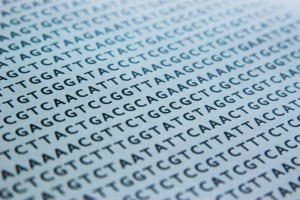 In 1990, Mary-Claire King, PhD made a groundbreaking discovery: she identified a gene that was similar in people with inherited forms of breast cancer. She identified this gene by examining families with rare forms of breast cancer, such as those occurring early in life, in both breasts, or among male family members. The gene had very similar sequences, or mutations, among family members with breast cancer even though it is quite variable in the general population. Dr. King and others named this gene breast cancer 1, or BRCA1, and discovered that some mutations are associated with a greater than 60% lifetime risk of developing breast cancer.
In 1990, Mary-Claire King, PhD made a groundbreaking discovery: she identified a gene that was similar in people with inherited forms of breast cancer. She identified this gene by examining families with rare forms of breast cancer, such as those occurring early in life, in both breasts, or among male family members. The gene had very similar sequences, or mutations, among family members with breast cancer even though it is quite variable in the general population. Dr. King and others named this gene breast cancer 1, or BRCA1, and discovered that some mutations are associated with a greater than 60% lifetime risk of developing breast cancer.
Why are mutations in BRCA1 associated with cancer? The BRCA1 gene encodes a protein that repairs DNA when it is broken. When BRCA1 is mutated, damaged DNA is not repaired, potentially causing a cell to divide uncontrollably and become cancerous. Another related gene, called BRCA2, is also associated with increased breast cancer risk.
Interestingly, people with BRCA1 or BRCA2 mutations are also at greater risks of developing other cancers, especially ovarian cancer. Depending on the mutation, this risk can be as high as 55% over the course of a woman’s lifetime.
With the popularization of genetic testing over the last decade, people with the most severe BRCA mutations have taken a pro-active approach to cancer risk. These women have often seen family members die from cancer and consider mastectomies to preemptively stop any cancer in its tracks. Women may also opt for surgical ovarian removal, called oophorectomy, which causes infertility and thrusts them into menopause. As such, younger women often struggle with desires to have children and those to prevent cancer.
Current techniques in oncofertility, such as ovarian tissue cryopreservation (OTC), are not options for BRCA patients. OTC entails removal of the ovaries, cryoprotection and freezing, followed by reimplantation when a woman is ready to conceive a child. Unfortunately, ovarian implantation may also implant cancerous tissue into a BRCA patient and is not used for these women. Current research at the Oncofertility Consortium is working to develop new treatments for BRCA patients.

